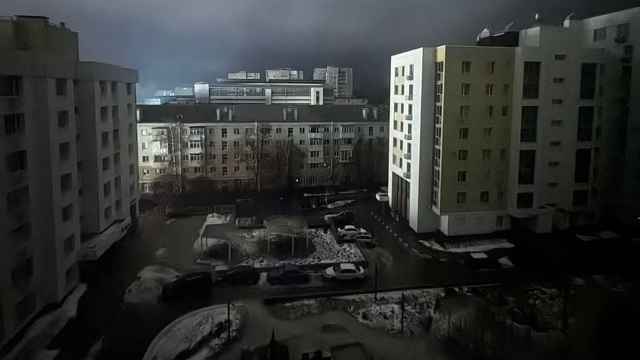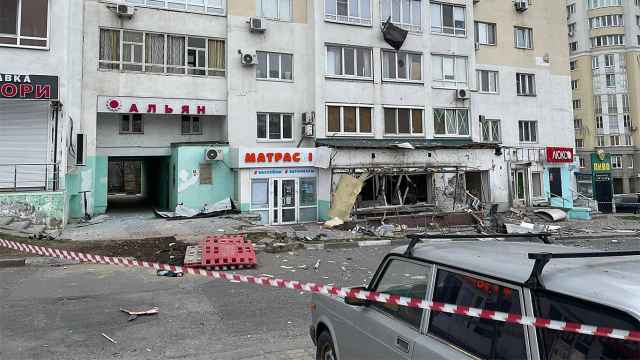Russian authorities declared an emergency at a key reservoir after a series of Ukrainian strikes caused significant structural damage to a dam in the southwestern Belgorod region, officials said Monday.
The Belgorod reservoir dam was hit last Friday and Saturday, Russia’s Federal Water Resources Agency told the state-run news agency TASS. It marks the first time since the Russian invasion of Ukraine that a Ukrainian strike has caused major damage to a hydrotechnical facility inside Russia.
“The water level in the reservoir dropped by 1 meter (3.2 feet) as a result of the damage,” the water resources agency said, adding that a facility-level state of emergency had been introduced alongside a recovery plan.
About 1,000 residents in the potential flood zone have been offered temporary accommodation, Belgorod region Governor Vyacheslav Gladkov said on Saturday.
Gladkov said the situation had “stabilized” by Monday morning, but warned of continued danger amid fears of new strikes.
Videos published by pro-Russian Telegram channels showed water spilling through a cracked sluice gate and flooded trenches reportedly used by Russian troops. The BBC said it has verified footage of the damage.
Robert Brovdi, commander of Ukraine’s Unmanned Systems Forces, confirmed the dam strike.
Ukraine’s 16th Army Corps reportedly claimed the attack left several Russian units stranded and cut off from Russian logistics on the Ukrainian side of the Siverskyi Donets River.
The dam may have been struck by a U.S.-supplied HIMARS rocket system, according to unverified reporting by the independent Belgorod region news outlet Pepel. Ukrainian officials have not confirmed the type of weapons used in the strike.
The outlet reported that water levels at the reservoir continued falling on Monday evening.
A Message from The Moscow Times:
Dear readers,
We are facing unprecedented challenges. Russia's Prosecutor General's Office has designated The Moscow Times as an "undesirable" organization, criminalizing our work and putting our staff at risk of prosecution. This follows our earlier unjust labeling as a "foreign agent."
These actions are direct attempts to silence independent journalism in Russia. The authorities claim our work "discredits the decisions of the Russian leadership." We see things differently: we strive to provide accurate, unbiased reporting on Russia.
We, the journalists of The Moscow Times, refuse to be silenced. But to continue our work, we need your help.
Your support, no matter how small, makes a world of difference. If you can, please support us monthly starting from just $2. It's quick to set up, and every contribution makes a significant impact.
By supporting The Moscow Times, you're defending open, independent journalism in the face of repression. Thank you for standing with us.
Remind me later.






